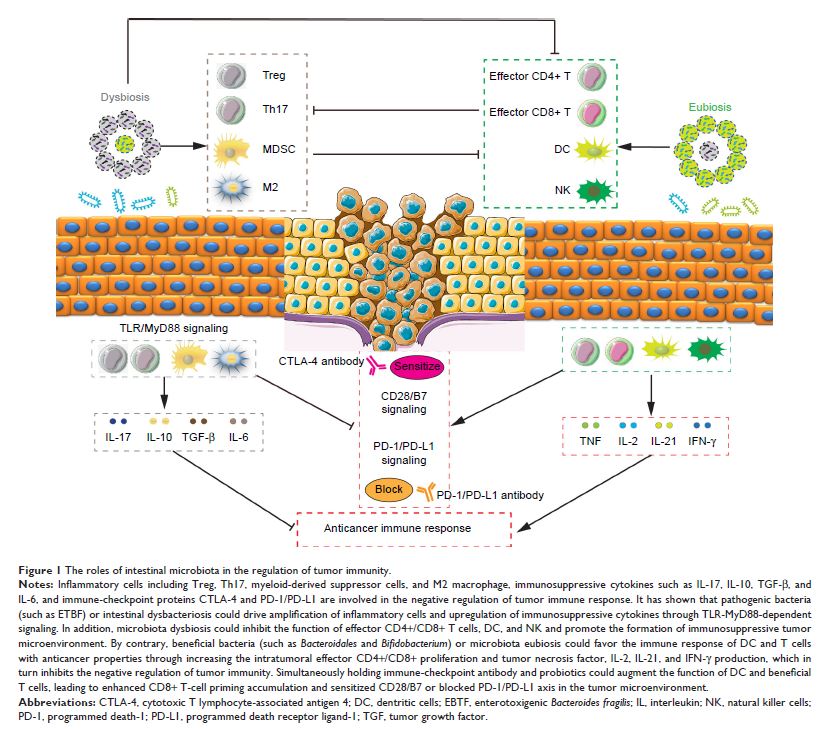9 0 6 7 6
论文已发表
注册即可获取德孚的最新动态
IF 收录期刊
- 2.6 Breast Cancer (Dove Med Press)
- 3.9 Clin Epidemiol
- 3.3 Cancer Manag Res
- 3.9 Infect Drug Resist
- 3.6 Clin Interv Aging
- 4.8 Drug Des Dev Ther
- 2.8 Int J Chronic Obstr
- 8.0 Int J Nanomed
- 2.3 Int J Women's Health
- 3.2 Neuropsych Dis Treat
- 4.0 OncoTargets Ther
- 2.2 Patient Prefer Adher
- 2.8 Ther Clin Risk Manag
- 2.7 J Pain Res
- 3.3 Diabet Metab Synd Ob
- 4.3 Psychol Res Behav Ma
- 3.4 Nat Sci Sleep
- 1.9 Pharmgenomics Pers Med
- 3.5 Risk Manag Healthc Policy
- 4.5 J Inflamm Res
- 2.3 Int J Gen Med
- 4.1 J Hepatocell Carcinoma
- 3.2 J Asthma Allergy
- 2.3 Clin Cosmet Investig Dermatol
- 3.3 J Multidiscip Healthc

肠道微生物群: 结直肠癌生物治疗学的新视角
Authors Ding C, Tang W, Fan X, Wu G
Received 10 April 2018
Accepted for publication 12 June 2018
Published 13 August 2018 Volume 2018:11 Pages 4797—4810
DOI https://doi.org/10.2147/OTT.S170626
Checked for plagiarism Yes
Review by Single-blind
Peer reviewers approved by Dr Cristina Weinberg
Peer reviewer comments 3
Editor who approved publication: Dr Yao Dai
Abstract: It is believed that genetic factors, immune system dysfunction,
chronic inflammation, and intestinal microbiota (IM) dysbiosis contribute to
the pathogenesis of colorectal cancer (CRC). The beneficial role played by the
direct regulation of IM in inflammatory bowel disease treatment is identified
by the decreased growth of harmful bacteria and the increased production of
anti-inflammatory factors. Interestingly, gut microbiota has been proven to
inhibit tumor formation and progression in inflammation/carcinogen-induced CRC
mouse models. Recently, evidence has indicated that IM is involved in the
negative regulation of tumor immune response in tumor microenvironment, which
then abolishes or accelerates anticancer immunotherapy in several tumor
animals. In clinical trials, a benefit of IM-based CRC therapies in improving
the intestinal immunity balance, epithelial barrier function, and quality of
life has been reported. Meanwhile, specific microbiota signature can modulate
host’s sensitivity to chemo-/radiotherapy and the prognosis of CRC patients. In
this review, we aim to 1) summarize the potential methods of IM-based
therapeutics according to the recent results; 2) explore its roles and
underlying mechanisms in combination with other therapies, especially in biotherapeutics;
3) discuss its safety, deficiency, and future perspectives.
Keywords: intestinal microbiota, colorectal cancer, biotherapeutic, immune
response
